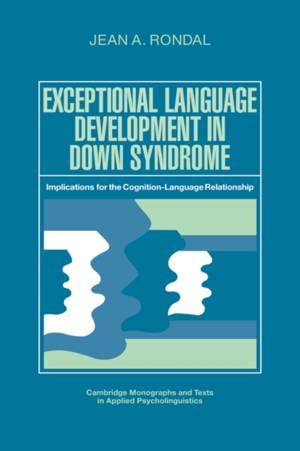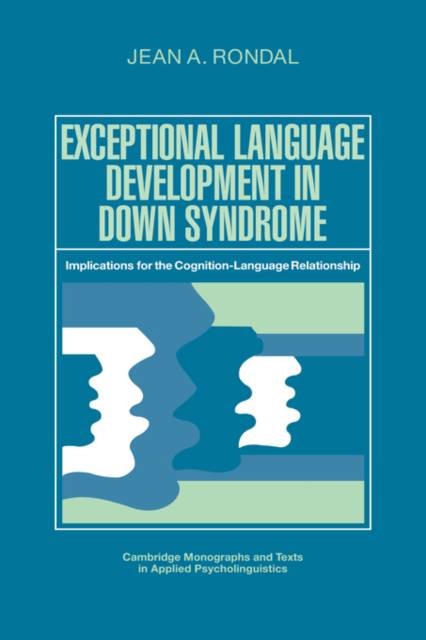
Bedankt voor het vertrouwen het afgelopen jaar! Om jou te bedanken bieden we GRATIS verzending (in België) aan op alles gedurende de hele maand januari.
- Afhalen na 1 uur in een winkel met voorraad
- In januari gratis thuislevering in België
- Ruim aanbod met 7 miljoen producten
Bedankt voor het vertrouwen het afgelopen jaar! Om jou te bedanken bieden we GRATIS verzending (in België) aan op alles gedurende de hele maand januari.
- Afhalen na 1 uur in een winkel met voorraad
- In januari gratis thuislevering in België
- Ruim aanbod met 7 miljoen producten
Zoeken
Exceptional Language Development in Down Syndrome
Implications for the Cognition-Language Relationship
Jean A Rondal, J A Rondal, Rondal Jean a
€ 92,45
+ 184 punten
Uitvoering
Omschrijving
Advanced language acquisition is possible in spite of serious mental handicap. This is the conclusion reached at the end of a thorough study of the language of a Down syndrome adult woman, exhibiting virtually normal expressive and receptive grammar. This case, presented in this book, is compared to a small number of other exceptional cases of language development in mental retardation. The findings are powerful arguments against the claim that the acquisition of grammar is determined by prior nonlinguistic cognitive achievements. Moreover, data analysis and comparison with other observations in language pathology (specific language impaired children, aphasic syndromes, degenerative syndromes, dementias) suggest that linguistic knowledge consists of independent but interacting modules. These data also supply interesting arguments in favor of a conception of grammatical development as the gradual unfolding of innate species-specific dispositions, and undoubtedly this book will appeal to researchers and advanced students in language development, developmental psychopathology and special education.
Specificaties
Betrokkenen
- Auteur(s):
- Uitgeverij:
Inhoud
- Aantal bladzijden:
- 368
- Taal:
- Engels
- Reeks:
Eigenschappen
- Productcode (EAN):
- 9780521369664
- Verschijningsdatum:
- 28/04/1995
- Uitvoering:
- Paperback
- Formaat:
- Trade paperback (VS)
- Afmetingen:
- 154 mm x 233 mm
- Gewicht:
- 589 g

Alleen bij Standaard Boekhandel
+ 184 punten op je klantenkaart van Standaard Boekhandel
Beoordelingen
We publiceren alleen reviews die voldoen aan de voorwaarden voor reviews. Bekijk onze voorwaarden voor reviews.









